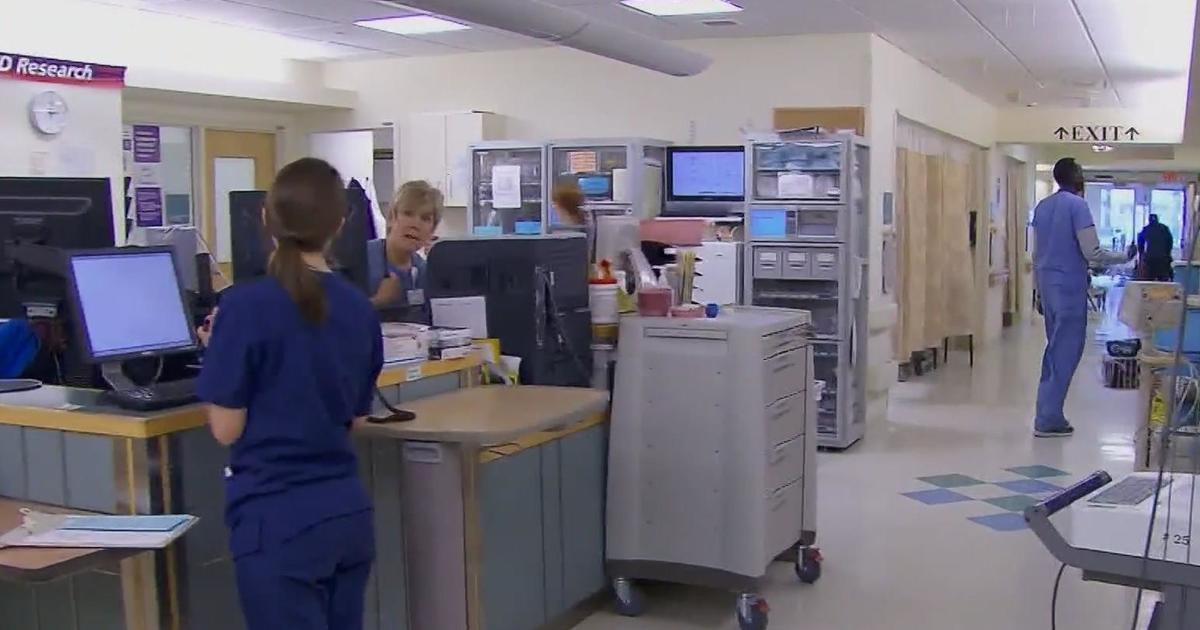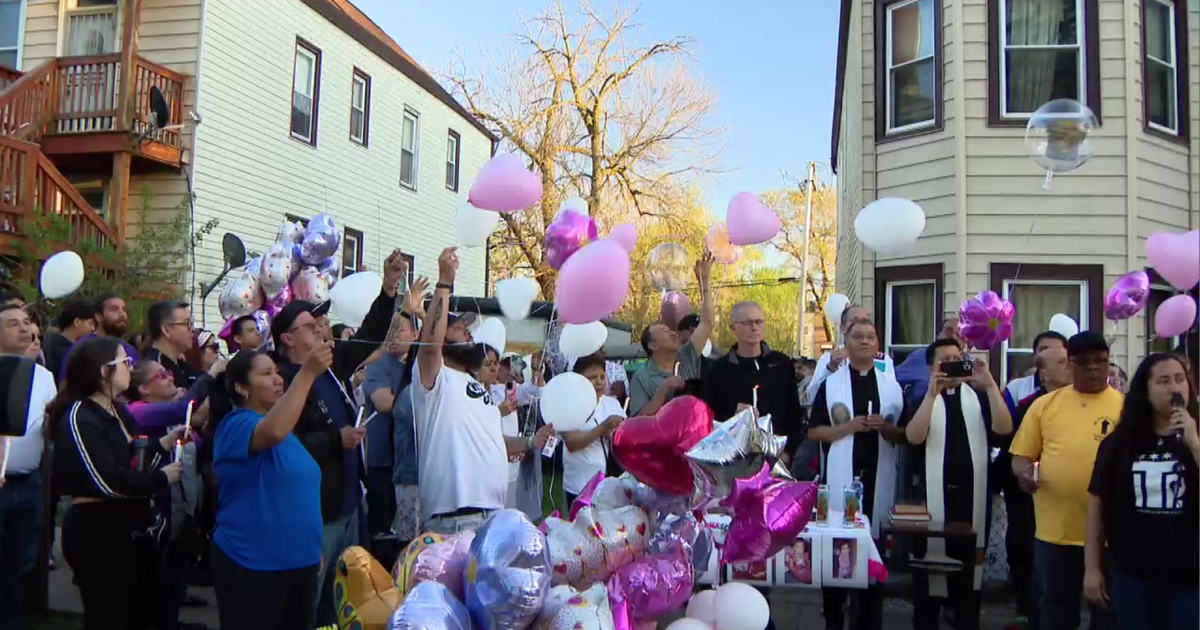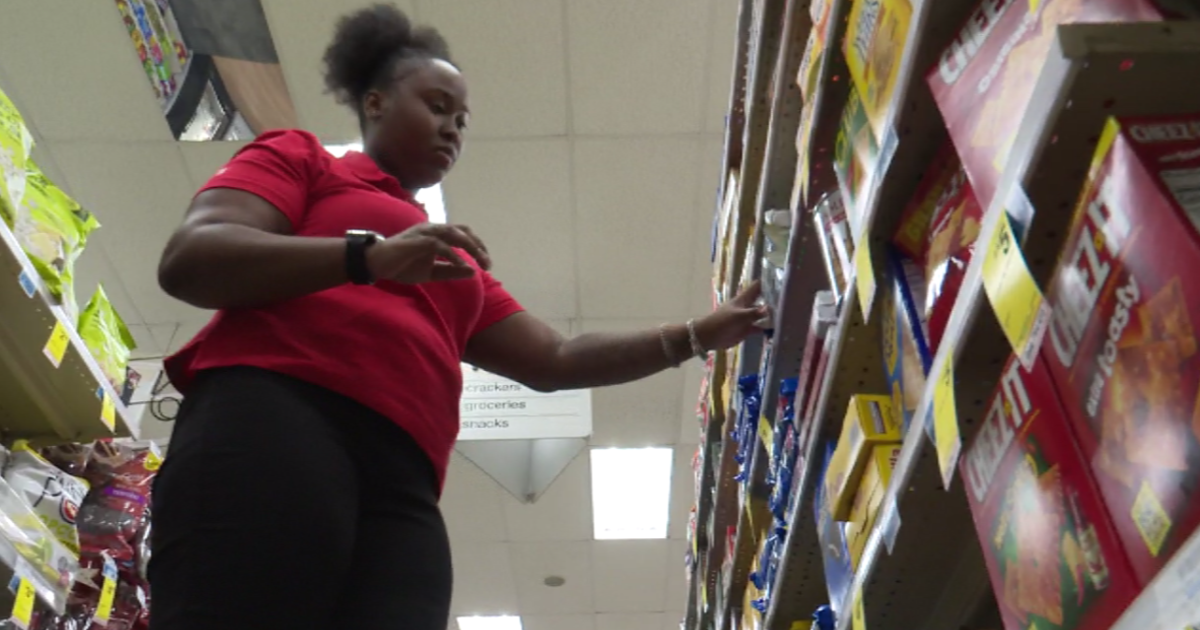BLOG: Why The Media Isn't Covering The NAACP Explosion
The views expressed here are solely the writer's opinion. They do not represent the views of CBS.
Considering the current state of racial relations in America (which is to say, considering the widespread anger over the disproportionate amount of violence committed against people of color in America), it doesn't take a hardened veteran of the news industry to look at the explosion in front of the NAACP offices in Colorado Springs and say, "There's a story here."
So why isn't this story getting reported on?
That question alone isn't a very good one. It doesn't address the reality of our news industry and how people respond to it, which is what I hope to cover here. There are many facets to this discussion, many of which I will most likely miss, but here are the few insights I have to offer.
First of all, there is no reason for CBS Chicago to report on the NAACP explosion.
CBS Chicago's responsibility is to Chicago, and without a Chicago angle to a story, our hands are, to an extent, tied (having no idea how they operate, I can't speak for the national CBS News broadcast).
Short of finding some over-reaching excuse to talk about it (a blog post responding to Chicagoans asking why the NAACP explosion isn't being reported on, for example), it can sometimes be difficult to find excuses to cover some stories that take place out of the Chicago area.
But did we fail our responsibility to share the story? On Wednesday, I made sure to retweet CBS Denver's latest post about the incident. I made the boneheaded assumption someone else had already shared CBS Denver's article on our Facebook, which hadn't happened. It first appeared this morning when we shared one of CBS Denver's articles on the bombing: FBI Looks For Motive In Explosion Near Colorado NAACP Office.
By Wednesday morning, most major national TV stations and digital publications were reporting on the explosion. So, in one minute sense, news outlets were covering the explosion. It just wasn't getting the exposure that some viewers and readers felt it deserved. Why not?
Because carnage always wins.
Tuesday night, as Twitter was abuzz with the first bits of news about the NAACP explosion on a national scale, I expected to wake up Wednesday morning with that story leading the headlines.
And then Charlie Hebdo happened. The tragedy in which 12 employees of the French satirical newspaper Charlie Hebdo were gunned down by terrorists would take over the news cycle.
The stories are inextricably stuck together, having shared a news cycle. But they're so drastically different.
In the case of the Charlie Hebdo tragedy, even as it was developing, we had at least a foggy idea of all the key elements. People were dead. It was a terrorist attack. They're not finite answers, but there was at least a framework for the who and the why.
In the case of the Colorado Springs NAACP explosion, facts have emerged very differently. It was a small explosion with no injuries and minor property damage. Officials expressed uncertainty at the target, was it the NAACP offices or the barbershop? Though a white male in his forties is a person of interest in the case, the FBI has yet to speak on whether this was a domestic terrorist attack or a hate crime.
I personally have no doubt that this was a hate crime committed against the NAACP, most likely spurred directly or indirectly by the continued criticism over Darren Wilson's lack of indictment for killing unarmed teenager Michael Brown. As someone working in the news, it's difficult to say that in an article, since the FBI hasn't given us anything concrete.
With these two incidents before us, it's easy to see why many journalists and television networks would choose to publicize Charlie Hebdo over the NAACP explosion. In the news world, carnage almost always wins.
Then there's the Facebook effect...
There does not appear to be enough room to mourn two tragedies on Facebook.
On many metrics, the NAACP explosion got a lot of exposure.
While Charlie Hebdo was the number one trend on Google yesterday, the NAACP bombing was number six -- hundreds of thousands of people searched for it, and readers were probably in the millions. The bombing was a very big story, but the Charlie Hebdo story overshadowed it. On the average news day, the NAACP story would have stood out on the Internet, but Wednesday was not an average news day.
For Facebook in particular, complicated algorithms control what you see in your feed. Chances are, you're seeing a fraction of what your friends are actually posting. When something like Charlie Hebdo is taking over the internet, it's the general understanding (to those of us who aren't engineers at Facebook) that Facebook's algorithms will spam your newsfeed with it, to the detriment of any other stories your friends are trying to share.
It's possible that some of your friends were sharing stories about the NAACP story, and you had no idea. It may very well have gotten drowned out in all the other stories, links, photos and comments that Facebook's computer code decided was more important.
Social Media has become very problematic for the media.
Expectations from readers in some cases are too high. Many expect articles at the same pace as Tweets, which isn't possible for most organizations. If something big happens regionally, it's not unreasonable to expect local news to write about it the day it happens, with national and non-regional sites getting to the story a day later. Time-wise, this is what happened with the NAACP bombing.
The bigger problem is that social media and search engine traffic has become the primary sources of traffic for many digital news agencies. This has indirectly given social media and Google way too much influence over how most news outlets report.
Modern journalists are judged heavily by how many views they're getting. A reporter's job isn't just to write articles, but to track the success of their articles -- the number of views, the number of people who came from Facebook, the number of people who came from Google -- and to try and recreate it. If Mike Royko could look at the number of people reading his columns in real-time, would he have written the same things he wrote, or would he have changed his articles to get the maximum number of pageviews?
As a digital reporter, I have time to look at social media, time to look at the views our articles are getting and time to write. The only time I can take a moment to think thoughtfully about the things I'm reporting on, is when I get up from my desk to grab a Wild Cherry Pepsi ... And that's only because the pop machine doesn't have Facebook.
Obviously I'm exaggerating, but I'm also addressing a very real problem. News websites are often understaffed and solely driven by numbers, which leaves most modern journalists little time to be thoughtful. But, that doesn't mean we shouldn't be thoughtful. We all have a responsibility to kick ourselves in the butt a few times a day, not to question whether our work will get the right number of pageviews, but to question whether our work is ethical.
Then there's the more complicated part of this discussion: race.
It's also the most important part of the discussion.
Ultimatley, despite the factors I listed above, I can't say for certain what led to the NAACP explosion being excluded from the TV channels you watch and the websites you read.
I do think that the majority of news directors relate more with satirists than they do NAACP employees, and that definitely factors into the stories they feature.
When you imagine a satirist in America, you imagine the likes of Harvard graduate Conan O'Brien, who was once in charge of the Harvard Lampoon (and I believe he has a little talk show now, I forget the name). If you don't, maybe you imagine Mark Twain or Scott Dikkers, former Editor-in-Chief of The Onion. At the end of the day, the average news director most likely has a heck of a lot more in common with the likes of Conan O'Brien and Scott Dikkers than they do with individuals working at the Colorado Springs NAACP office. This absolutely factors into the work they do and the way they do it.
So am I surprised the Charlie Hebdo tragedy got the attention it got? No, it was a horrific attack that resonated with people around the world, most notably journalists.
Am I surprised people are angry at the news media over the lack of attention of the NAACP explosion? No, many of the people in charge of the news media aren't personally invested in the stories of people of color, and this has continually affected the way the news is reported in our country.
Without more diverse news organizations and thoughtful responses to the ever-evolving Internet, we will, in the simplest terms I can think of, continue to suck.
Before I make my exit, I'll ungracefully say two more things:
1. The importance of free speech cannot be emphasized enough. This is a right everyone deserves, satirists, people criticizing satirists and everyone in between. As we exercise our free speech, we should try to be thoughtful, remembering that the terrorists who killed 12 people at the Charlie Hebdo offices don't reflect the millions of American citizens who happen to be Muslim. They, just like everyone else, deserve the same rights and respect as all Americans.
2. Before talking about race in America, before belittling the threats against American communities you may not be a part of -- like the explosion of a homemade bomb in front of a NAACP office -- muster as much empathy as possible. We seem to be consistently in short supply of it lately.
Mason Johnson is a Web Content Producer for CBS Chicago. You can find him on Twitter.



